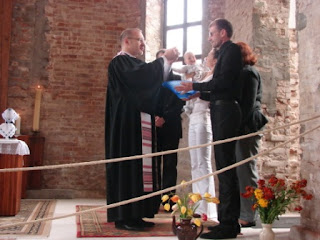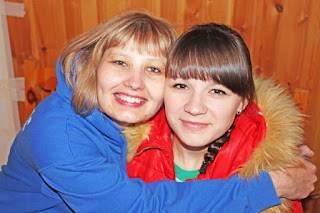Moscow
On July 19th after 8 years of service Pastor Fara Rayarisoa from Madagascar completed her service in the French-speaking Protestant congregation of Moscow. This event was marked by worship in St. Peter and Paul cathedral and by an African barbecue meal in the courtyard after worship.
Elena Bondarenko, Dean of the Moscow region, is fluent in many languages, including French; this will allow her to be Pastor Fara's successor. The congregation already knows Pastor Bondarenko well thanks to her frequent visits to and preaching in their congregation, which is made up of French-speaking Africans and a few Protestant French citizens who work at the embassy. The congregation has been in contact with the ELCER for 15 years already and celebrates its regular services in the chapel. This year the congregation expressed its desire to become an official congregation of the ELCER while at the same time maintaining its French Protestant identity.
On July 19th after 8 years of service Pastor Fara Rayarisoa from Madagascar completed her service in the French-speaking Protestant congregation of Moscow. This event was marked by worship in St. Peter and Paul cathedral and by an African barbecue meal in the courtyard after worship.
Elena Bondarenko, Dean of the Moscow region, is fluent in many languages, including French; this will allow her to be Pastor Fara's successor. The congregation already knows Pastor Bondarenko well thanks to her frequent visits to and preaching in their congregation, which is made up of French-speaking Africans and a few Protestant French citizens who work at the embassy. The congregation has been in contact with the ELCER for 15 years already and celebrates its regular services in the chapel. This year the congregation expressed its desire to become an official congregation of the ELCER while at the same time maintaining its French Protestant identity.











































